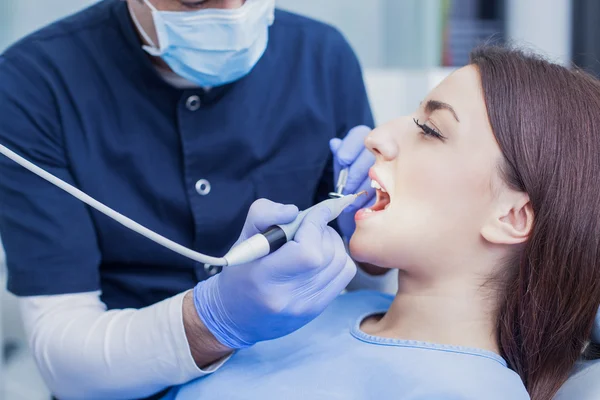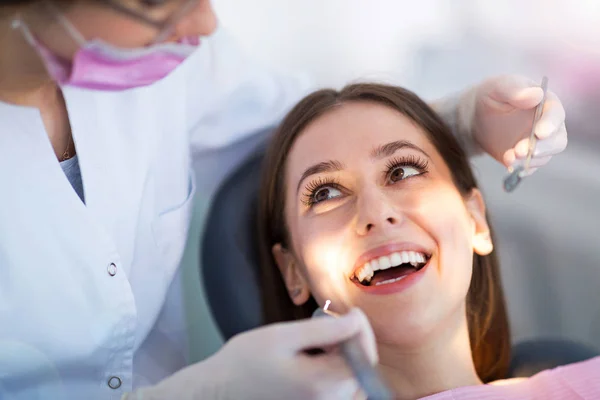A look at “Disadvantages of Teeth Cleaning” When it comes to maintaining your overall health, one aspect that often gets overlooked is dental health. However, the truth is that your oral health plays a significant role in your overall well-being. In this article, we will delve into the importance of regular dental cleanings and how they can positively impact your health.

The Disadvantages of Teeth Cleaning
Dental hygiene plays a pivotal role in maintaining overall health, and regular teeth cleaning is a fundamental component of this. However, in this article, we will explore the lesser-known disadvantages of teeth cleaning and emphasize why these potential drawbacks should not deter you from prioritizing your dental health.
Now, let’s address the potential disadvantages associated with teeth cleaning:
1. Sensitivity
After a dental cleaning, some individuals may experience temporary tooth sensitivity to hot or cold substances. This discomfort typically subsides within a few days but can be bothersome for some.
2. Gum Irritation
In rare cases, gum tissue may become irritated or bleed slightly after a dental cleaning. This is usually due to the removal of plaque and tartar from the gumline.
3. Cost
For those without dental insurance, the cost of regular cleanings can add up. However, it’s essential to consider the long-term savings compared to potential dental procedures for untreated issues.
4. Time Investment
A dental cleaning appointment can take anywhere from 45 minutes to an hour or more. This may inconvenience some people with busy schedules.
The Link Between Oral Health and General Health
Many people are unaware of the close connection between oral health and general health. Your mouth is not isolated from the rest of your body; it is an integral part of it. Neglecting your oral hygiene can lead to a host of health issues, some of which may surprise you.
- Preventing Gum Disease
Gum disease, also known as periodontal disease, is a common oral health issue that can have serious consequences. It has been linked to various systemic conditions, including heart disease, diabetes, and respiratory infections. Regular dental cleanings can help prevent gum disease by removing plaque and tartar buildup.
- Maintaining Fresh Breath
Bad breath can be embarrassing and is often a sign of underlying dental problems. Dental cleanings not only remove plaque but also eliminate bacteria that can cause bad breath, helping you maintain fresh and pleasant breath.
- Reducing the Risk of Tooth Loss
Tooth loss is a common consequence of untreated dental issues. Regular cleanings and check-ups can catch problems early, preventing the need for extractions and helping you keep your natural teeth for longer.
- Detecting Oral Cancer
Oral cancer is a serious and potentially life-threatening condition. Dentists are trained to detect the early signs of oral cancer during routine examinations. The sooner it’s diagnosed, the better the chances of successful treatment.
The Benefits of Professional Dental Cleanings
Now that we’ve established the link between oral health and overall health, let’s dive into the specific benefits of professional dental cleanings:
- Thorough Plaque and Tartar Removal: Even with diligent brushing and flossing, some areas of your mouth can be challenging to clean thoroughly. Dental hygienists have the tools and expertise to remove stubborn plaque and tartar buildup.
- Early Problem Detection: Regular dental check-ups can spot issues like cavities, cracked teeth, or gum disease in their early stages, preventing them from becoming more serious and costly to treat.
- Customized Oral Care: Dentists can provide personalized advice on maintaining your oral health. Whether it’s tips on proper brushing and flossing techniques or dietary recommendations, their guidance can make a significant difference.
- Brighter Smile: Dental cleanings can remove surface stains, leaving your teeth looking whiter and brighter.
The Importance of Overcoming Disadvantages
While the disadvantages of teeth cleaning may seem concerning, it’s vital to weigh them against the benefits and consider the bigger picture. Short-lived sensitivity or minor gum irritation is a small price to pay for the long-term advantages of maintaining your oral health.
Conclusion
In conclusion, regular dental cleanings are undeniably crucial for overall health. Despite the potential disadvantages, the benefits far outweigh the drawbacks. Sensitivity and gum irritation are temporary inconveniences, while the long-term consequences of neglecting oral health can be severe and costly.
Now that you understand the importance of dental cleanings, take the initiative to schedule your next appointment with your dentist. Your future self will thank you for it.
FAQs
1. How often should I get a dental cleaning?
It is generally recommended to have a dental cleaning every six months, but your dentist may suggest a different schedule based on your specific needs.
2. Are dental cleanings painful?
Dental cleanings are typically not painful. However, some individuals may experience minor discomfort, such as tooth sensitivity, which is usually temporary.
3. Can I skip dental cleanings if I brush and floss regularly?
Even with excellent oral hygiene practices, dental cleanings are essential for removing hard-to-reach plaque and tartar buildup and ensuring the early detection of potential issues.
4. How can I alleviate tooth sensitivity after a dental cleaning?
Tooth sensitivity after a dental cleaning can be managed with desensitizing toothpaste or gels recommended by your dentist.
5. Are dental cleanings covered by insurance?
Many dental insurance plans cover routine dental cleanings. Check with your insurance provider to determine your coverage and any associated costs.
Continue to check our website for more articles of this kind. And, please use our comment section as well, we would love to hear from you.
Last Updated on January 29, 2024 by 247 News Around The World






